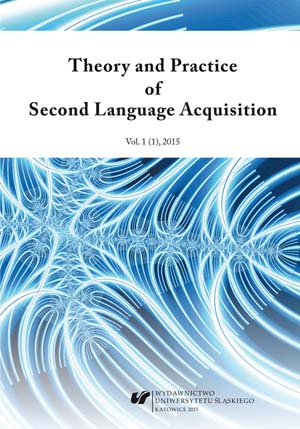How Relevant is the Sapir-Whorf Hypothesis to Contemporary Psycholinguistic Research?
How Relevant is the Sapir-Whorf Hypothesis to Contemporary Psycholinguistic Research?
Author(s): Jolanta LatkowskaSubject(s): Language and Literature Studies, Foreign languages learning, Theoretical Linguistics, Applied Linguistics, Language acquisition, Cognitive linguistics
Published by: Wydawnictwo Uniwersytetu Śląskiego
Keywords: linguistic relativity; Sapir-Whorf Hypothesis; cognition; language; correlational study
Summary/Abstract: The paper raises the question of whether the linguistic relativity proposal, also known as the Sapir-Whorf Hypothesis, should be used as a frame of reference for modern research into the relationship of language to cognition. The question is discussed in the context of Whorf’s (1956) writings, with emphasis on factors that are crucial to the proposal, i.e. language, thought, and behavior. The second issue addressed by the paper is whether linguistic categories provide an accurate window on cognition, as was suggested by Whorf and in some of the more recent debates. The analysis takes the form of a correlational study which examines the categorization criteria applied in tests that require language-based and language-neutral judgments.
Journal: Theory and Practice of Second Language Acquisition
- Issue Year: 1/2015
- Issue No: 1
- Page Range: 7-26
- Page Count: 20
- Language: English

